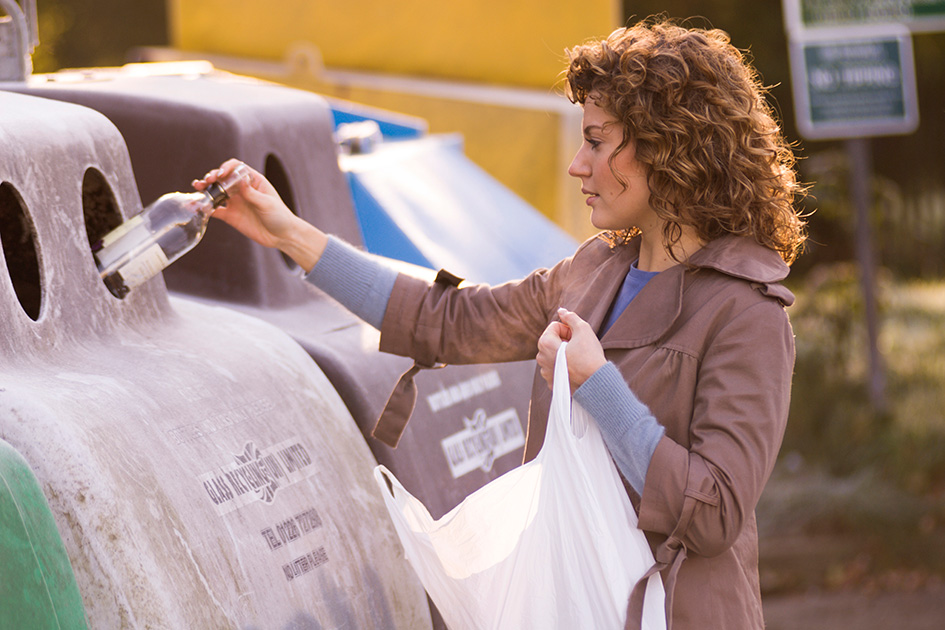Circular Economy
From Waste to a Sustainable Resource Management
The European Commission identifies the transition process to a circular economy and the treatment of "waste as a resource" as a key strategy for a resource efficient Europe. However, establishing waste management as part of a sustainable resource management framework means profoundly transforming one of the most important interfaces of socio-industrial metabolism.
From a resource-based perspective, waste is first and foremost to be avoided, which also includes increased reuse of products and single components. Repair and dismantling or the "upgrading" of second-hand products is required by the European Waste Framework Directive, for example. However, appropriate policies, guidelines, and indicators are still almost non-existent.

Waste is not only recycled to reduce the amount of disposal; its primary aim is to supply the production process with inputs for further production. "Waste" thus competes with primary resources. A true circular economy should aim at avoiding the downcycling of raw materials contained in waste, in particular by developing resource-based targets instead of solely weight-based ones. This will require innovative approaches to global resource management for waste that go beyond a mere transfer of environmental burdens.
The Wuppertal Institute develops strategies and concepts for a low-waste, resource-efficient society. The socio-economic, technical, and institutional challenges this entails are analysed and innovative approaches are developed and realised in cooperation with practice partners. Key areas include the development and evaluation of national waste prevention programmes, the optimisation of individual material flows (platinum group metals, copper, plastics) by research scientists at the Circular Systems Research Unit, and the further development of concepts of extended producer responsibility concepts (waste electrical and electronic equipment, end-of-life vehicles).
Publi-cations
Here you find publications on waste and resource management.
Related publications
Reparatur von Klima- und Einzelraumheizgeräten
Kurzstudie zur Relevanz des Reparierbarkeits-Index (R-Score)
Extended Producer Responsibility (EPR) in der Matratzenindustrie
Evaluierung verschiedener EPR-Modelle für Deutschland hinsichtlich ihrer Umsetzbarkeit und Effektivität zur Kreislaufschließung
Plastic Credits als Instrument zur Annäherung an eine Circular Economy
Einordnung der Nutzung des Marktmechanismus auf Abnehmerseite
Overcoming Information Asymmetry in the Plastics Value Chain with Digital Product Passports
How Decentralised Identifiers and Verifiable Credentials Can Enable a Circular Cconomy for Plastics
Time for a change of course: towards a climate-friendly, resource-light society
Contribution to the political debate in the 2021 election year
Der Digitale Produktpass als Politik-Konzept
Kurzstudie im Rahmen der Umweltpolitischen Digitalagenda des Bundesministeriums für Umwelt, Naturschutz und nukleare Sicherheit
Digital Eco-Innovation as a Means to Reach a Circular Economy in Europe
New Biennial Eco-innovation Observatory Report draws attention to digital circular policies and technologies
Understanding the Transformation Processes in Heavy Industry
Report of the REINVENT project published
Preventing Plastic Waste
New waste report lists measures to avoid plastic waste
Product Reuse is the Key to Waste Prevention
New EEA-report out now
Prevention of Hazardous Waste in Europe
Report published with Henning Wilts as lead author
National Policies for Resource Efficiency and Waste Management
Structures, impacts, and deficits
A New SAPIENS Issue Is Online
With special topic Resource Efficiency
Waste to Energy
Book on energy-from-waste approaches
Waste Prevention: Study Identifies Suitable Measures for National Programme
Federal Environment Agency publishes report for download
Environmental Implications and Costs of Municipal Solid Waste-Derived Ethylene
Article in the Journal of Industrial Ecology
Projects
Here you find research activities in the field of waste and sustainable resource management.
